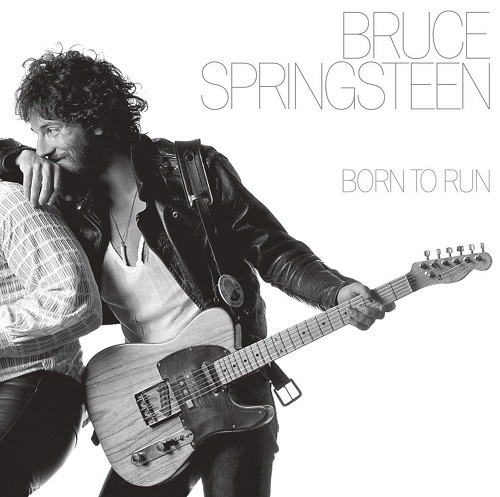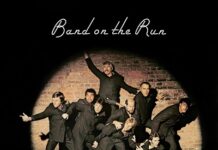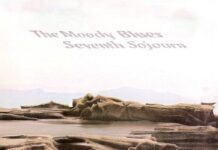Born To Run is the album that put Bruce Springsteen on the cover of both Newsweek and Time. It is a timeless snapshot of Americana — all sweaty, high energy, tuned to a carnival-like level. When Born To Run came out, Bob Dylan passed the baton to Springsteen, and more or less said, you take it from here, son. For many critics of the day, Born To Run made Bruce Springsteen the most important artist of his generation. Whatever that means.
The fact of the matter is that all these years later, Born To Run continues to define the beautiful rawness, fiery and conviction of Jersey’s latest native son. Making the songs come alive, the E-Street Band thrusts and jells with all the skill of a tight and cohesive bar band. The album is a combination of the brilliant piano work of Roy Bittan, the biting sax of Clarence Clemons (with a lots of filler horns courtesy of the infamous Brecker Brothers), and extra helpings of patchy and distinctive guitar from Stevie Van Zant. In the middle of it all is Springsteen, Telecaster in hand, throwing his heart and soul into each verse, regaled with emotion and character. Starting off strongly with “Thunder Road” and “Tenth Avenue Freeze-out,” and dovetailing into “Night” and “Backstreets,” Born To Run has all the makings of an exhausting and exhilarating roller coaster, that comes to a stop every once in awhile, but never for too long.
Inevitably, the entire album falls onto the shoulders of the title track. The song, “Born To Run,” reverberates with a strange glow of sustained optimism and mystique, all wrapped in a riddle that sort of evolves into an enigmatic anthem. The suspended guitar lick that blows through each stanza is only heightened by a middle break that harmonically jettisons, dodges and opens up vistas for miles around. It is quickly followed by “She’s The One,” carrying the working class idea one step further, as it takes on a sort of Spectorish quality, production-wise, suspending bits of the Atlantic City mentality and meshing it together on a much bigger playing field. Barnstorming through “Jungleland” clearly proves that Springsteen is the Boss.
While Springsteen’s subsequent releases would yield and succeed to differences of their own, Born To Run has always been held up as his most momentous recording. It was with this album that Springsteen’s songs first portrayed a glorious yet very real side of the suffering American, down on his luck, with his dreams shattered and hopes lost. In 1975, much of rock and roll isolated itself from that type of politicizing. Rock, of course, took a dramatic turn in the next couple years, and was shaken down to its visceral roots. Born To Run could have very well launched a new form of consciousness toward the excessive styles of music without even trying. That’s quite a feat in itself.
~ Shawn Perry




















